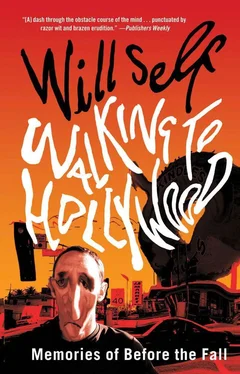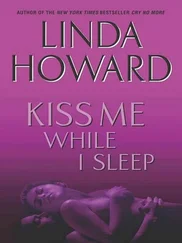Will Self - Walking to Hollywood
Здесь есть возможность читать онлайн «Will Self - Walking to Hollywood» весь текст электронной книги совершенно бесплатно (целиком полную версию без сокращений). В некоторых случаях можно слушать аудио, скачать через торрент в формате fb2 и присутствует краткое содержание. Год выпуска: 2011, Издательство: Grove/Atlantic, Inc., Жанр: Современная проза, на английском языке. Описание произведения, (предисловие) а так же отзывы посетителей доступны на портале библиотеки ЛибКат.
- Название:Walking to Hollywood
- Автор:
- Издательство:Grove/Atlantic, Inc.
- Жанр:
- Год:2011
- ISBN:нет данных
- Рейтинг книги:4 / 5. Голосов: 1
-
Избранное:Добавить в избранное
- Отзывы:
-
Ваша оценка:
- 80
- 1
- 2
- 3
- 4
- 5
Walking to Hollywood: краткое содержание, описание и аннотация
Предлагаем к чтению аннотацию, описание, краткое содержание или предисловие (зависит от того, что написал сам автор книги «Walking to Hollywood»). Если вы не нашли необходимую информацию о книге — напишите в комментариях, мы постараемся отыскать её.
Walking to Hollywood — читать онлайн бесплатно полную книгу (весь текст) целиком
Ниже представлен текст книги, разбитый по страницам. Система сохранения места последней прочитанной страницы, позволяет с удобством читать онлайн бесплатно книгу «Walking to Hollywood», без необходимости каждый раз заново искать на чём Вы остановились. Поставьте закладку, и сможете в любой момент перейти на страницу, на которой закончили чтение.
Интервал:
Закладка:
Counter-intuitively, a grid-plan city forces more decisions on the walker than the winding folkways of an older more haphazard urbanity. Since diagonal progress can be made equally effectively by any given series of horizontal and perpendicular traverses, at each intersection the choice of two directions remains, maddeningly. No wonder I opted for one huge L, and so plodded on along Century, then turned left up Cienega, which ran beside a God-gouged gutter full of the San Diego Freeway. Within three miles the limp pennants of the medieval car dealerships and the donutmorphic drive-ins were doing my fucking head in , man. The Edenic valley of the Colne, with its pylons and reedy rills, now came before me in all its lush raiment — why had I not remained there, waiting for my Sissy Spacek, then together with her raised a tribe of feral survivalists among the alders and poplars?
The signal phasing was weighted heavily against the pedestrian, while the clearance zone at each intersection was wide enough to swallow tribes of the impious. But there was one of me to tens of thousands of the Transformers. Each wait for the stickman to shine through the nuages was a vigil — I was finely balanced between grief and joy, while Hal cloned himself from one pole to the next. Eventually, at Florence, the sidewalk gave out and I was forced into the ur-suburba. As I ascended the Baldwin Hills, it occurred to me that almost all my life had been a topiary hare’s hopeless race along silent sidewalks beside empty homes. The buttery swathes of the lawns, the oh-so-slow lava flows of the crescents and drives, the Ionic, Doric and Corinthian columns as hollow as subprime mortgages — it didn’t matter a jot if the inhabitants were white or, as here, black, suburbs were always at once pre- and post-apocalyptic. In the two-car garage the wayward Cal-Tech physicist connects a purloined cyclotron to a Barcalounger — with devastating results.
The stop lady for Highland Elementary hustled some kids — including me — across the road and I arrived at Homebase, where a score or more of Hispanic extras hung out in the parking lot to see if they’d be taken on for a day impersonating gardeners in long shot. I stopped to chat: no, they didn’t mind the stereotyping, but ‘Y’know, my friend, in this part of town ground staff are almost always whites — it’s, like, a status symbol,’ said one with Coppertone skin and a Fu Manchu goatie.
‘Yeah,’ his buddy concurred. ‘For a reactive industry Hollywood is so fuckin’ slow.’
I went on past caged-in basketball courts and reached the scrubby uplands where oil pumps rose and fell like dipping bird toys. The Jeffs were waiting for me and I conspicuously ignored them as they set up for a long shot in a lay-by. Still, I was grateful for their perfect timing: the nuages maritimes were lifting, and to the north the Los Angeles basin lay revealed: 300 square miles of eyes and camera lenses. Somewhere out there was a killer or killers and I needed the crew’s prophylaxis badly; unprotected, who knew what I might become prey to — surely only the pathetic self-consciousness of adolescence, which commences with checking for zits in wing mirrors, and culminates — ten years or yards along the road — in a screen test?
Absorbed in the steady rhythm of my paces I forgot about the Jeffs. I was walking through the Ruben Ingold County Parkway — a strip of greenery that ran along the spur above Slauson — when down in the valley, on the far side of the highway, I spotted a bum asleep on a bench. At least, I thought that’s what it was — I couldn’t be certain from this distance. There was an uncanny flatness to the static figure — besides, I knew most LA benches were bum-proofed, their seats either canted forward so it was impossible to find repose, or else segmented with hip-spearing ridges.
I turned aside from the path and plunged downhill, leaping fences and crashing through the undergrowth. Was it a man, or some weird hallucination of mine, provoked by sleeplessness? It wasn’t until I reached the verge and Escalades were whipping past the toes of my shoes that I realized it was a trompe l’œil ad for Will Smith’s latest movie, Hancock , in which, cast against type, the suave actor played a bum who also happens to be a superhero. Swept with an unreasonable rage, I glowered on Smith’s life-sized 2-D copy: the reflective shades, the stubbly jaw, the woolly hat and Hawaiian shirt. 1-800-LAw, NO WIN-NO FEE — that I could cope with, but movie ads should stick to billboards, the hopeful tombstones of dead drive-ins.
I rolled down the hills to Leimert Park, where I got a bucket of tea and stopped for a smoke by the art deco movie theatre that marks the cultural epicentre of the city’s black population. The bench I reclined on burned with a slogan for the MAALES project (Men of African American Legacy Empowering Self): ‘Bisexual, curious, or straight but fool around now and then?’ Then, like a bandsaw’s blade, I juddered my way through the Carpenter Gothic streets of Crenshaw and West Adams, which, under the guise of Sugar Hill, was the only racially desegregated neighbourhood in 1920s Los Angeles: Theda Bara, Busby Berkeley and Fatty Arbuckle had been replaced by a weeping fat boy pushing an obviously new mountain bike, whose father taunted him, ‘You can’t ride it, you’ll never ride it!’
When I came along Jefferson to the leafy environs of USC, the mission Muslim architecture gave way to postmodernist parkland. I patted myself down for sawdust and tried smiling at the coeds, but they took one look at my middle-aged white man horror mask and swerved away. There was a flyer up outside one of the halls advertising a lunchtime jam by NWPhd, and, intrigued by the sounds that were emanating — Gil Scott-Heron mixed improbably with Orlandus Lassus — I plunged inside. The Jeffs, who were still strapped up in their equipment, couldn’t follow me into that darkness, so joined Will Smith on a bench to wait.
Up on a low stage four tall African-American men were rapping; one of them was doing the Latin: ‘ Hoc quicquid tandem sum, caruncula est et animula et animi principatus .’
The next the English: ‘Whatsoever I am, is either flesh, or life, or that which we commonly call the mistress and overruling part of man: reason.’
While the others picked out a word or two and scatted with it in a deep undertone, so: ‘ Quicquid-quicquid-principatus-quidipatus …’ Or: ‘What-so-what-so-what-so-reason.’
It was a commanding performance. The four were dressed conservatively in bankers’ suits, shirts and ties, their hair closecropped, and so resembled a new generation of the Modern Jazz Quartet. Their rapping was at once percussive and euphonious, plaiting the two languages together: ‘ Missos fac libros: noli amplius distrahi; sed ut jam moriens carunculam contemne: cruor est ossicula et reticulum, ex nervis, venulis et arteriis contextus .’
(‘ Venulus-nervis, venulus-nervis, nervulis-venis …’)
‘Away with thy books, suffer not thy mind any more to be distracted, and carried to and fro; for it will not be; but as even now ready to die, think little of thy flesh: blood, bones, and a skin; a pretty piece of knit and twisted work, consisting of nerves, veins and arteries; think no more of it, than so.’
(‘Veins-an’ — nerves, veins-an’-nerves, neryvein-vein…’)
I was surprised there wasn’t more of an audience for NWPhd — only a few lounging emos picking their hangnails in plastic chairs; but then, what did I know?
‘ Quin etiam animam contemplare, qualis sit: spiritus, nec semper idem, sed quod singulis momentis evomitur et resorbetur .’
(‘ Spiritus-singulis, spiritus-singulis …’)
Читать дальшеИнтервал:
Закладка:
Похожие книги на «Walking to Hollywood»
Представляем Вашему вниманию похожие книги на «Walking to Hollywood» списком для выбора. Мы отобрали схожую по названию и смыслу литературу в надежде предоставить читателям больше вариантов отыскать новые, интересные, ещё непрочитанные произведения.
Обсуждение, отзывы о книге «Walking to Hollywood» и просто собственные мнения читателей. Оставьте ваши комментарии, напишите, что Вы думаете о произведении, его смысле или главных героях. Укажите что конкретно понравилось, а что нет, и почему Вы так считаете.












